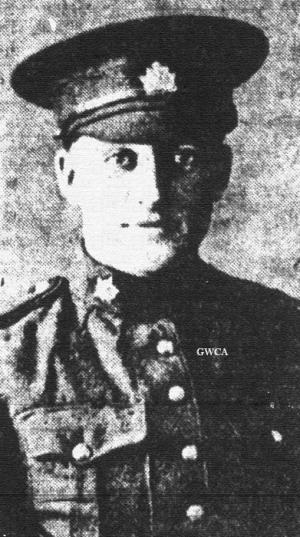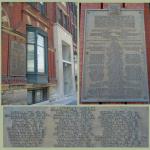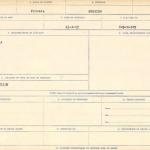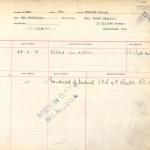BX February 4, 1915
The Woolwich Arsenal Keeps 30,000 Men Working Steady – Interesting Stories of How Two Brantford Boys at Salisbury Camp Spent Their Leave – Woolwich and London the Centres the Boys Gravitated to – Christmas Dinner in Camp
That there are 30,000 men working in night and day shifts at the Woolwich arsenal, the great manufacturing government depot for the British army and navy, is the information contained in a letter received by Mrs. J. Huggins, 17 Elliott Avenue, from her son, George, with the Duffs at Salisbury camp. He tells an interesting story of how he spent his six days leave in the arsenals and other centres of military activity. Another interesting letter, along similar lines, has been received by Mrs. Robert McCartney, 18 Mt. Pleasant Street, from her son Bob, a fellow member of Huggins. The letters follow:
Pte. G. Huggins, No. 11369
G. Company, 4th Batt, 1st Brigade,
Bustard Camp, Canadian Contingent,
Salisbury Plain
Dear Mother,
As I have just come back from my six days’ leave I thought you would like to know about my travels. Well first Jim and I went up to Woolwich to see Uncle Fred Penny as being one of the superintendents in the Woolwich arsenal, we knew he had the privilege to take us over, and you know there are not many can go over the arsenal now on account of so many spies. Well he showed us a great many big guns, one was 53 feet long and 15 feet round, and the smaller ones that is the 13.5 are now mounted on cradles far up in the air and throw out 6,000 lb. shots at a time. We then went through the shell foundry, the one Dad used to work in, and saw some of the big shells like he used to handle, which cost as much as $500 each. We went through the danger buildings and the bullet plant, where Jim worked and he saw several of his mates, who wanted to know all about Canada and why he volunteered. They were all pleased to meet him. We went through a good many other places, but it would take too long to tell you all. Uncle Fred says there are over 30,000 men working day and night, also Sundays. He said Dad ought to be here now; he would be at his old job quick enough. He then took us over the city hall, which is some grand building – very different to Brantford. We stopped in Woolwich that night and next day went on to London and met Uncle Harry. He took us over the city and into St. Paul’s Cathedral, Westminster Abbey, the Tower of London and the Houses of Parliament, and we saw the outside of Buckingham Palace, but could not go in there. He also took us in some different places where they analyze. He being one of the sanitary inspectors at Islington he could get passes to go in, so you see we came off good, as a lot of the places are really shut-up to the public. We went to Erith the next day, all through Vickers & Sons and Maxim’s and saw a lot of big guns there – those quick-firing guns you hear talked about – and we saw our Fred’s foreman, the one he was apprenticed under. He wanted to know how he was getting on in Canada and also wanted his address. I told him he was farming on his own land in California, so he is going to write to him. He showed us all over the foundry and explained it to us, so you see we are having a good time, for everyone makes such a fuss over us.
You say you are having a lot of snow. Well that is better than for us – it is all rain and mud over our boot tops in mud, but I guess we shall soon be going from here. I hope so and also that we shall have a smack at the Germans. I will bring a souvenir from them when I come home. Remember me to all friends in Brantford and I hope all are well, as we all are, especially the 38th Duffs. Before I close I must tell you of Christmas day, which I spent in camp. It was made a dandy day as far as the government could. Our menu for dinner was roast chickens, beef, carrots, potatoes, plum pudding, cake and rum salad. Then the next day being Boxing Day there was an invite to a place called Devizes, and two from every company was sent to the town hall to a banquet. I being one of the lucky ones from our company. We were received by the mayor and mayoress and then had a splendid lunch, concert and smoker after, arriving home in camp tired but happy at 12.30.
I started my leave on Dec. 30 for the six days. I guess I must close now as I am tired of writing but will tell you a little more next week.
Your loving son,
George




